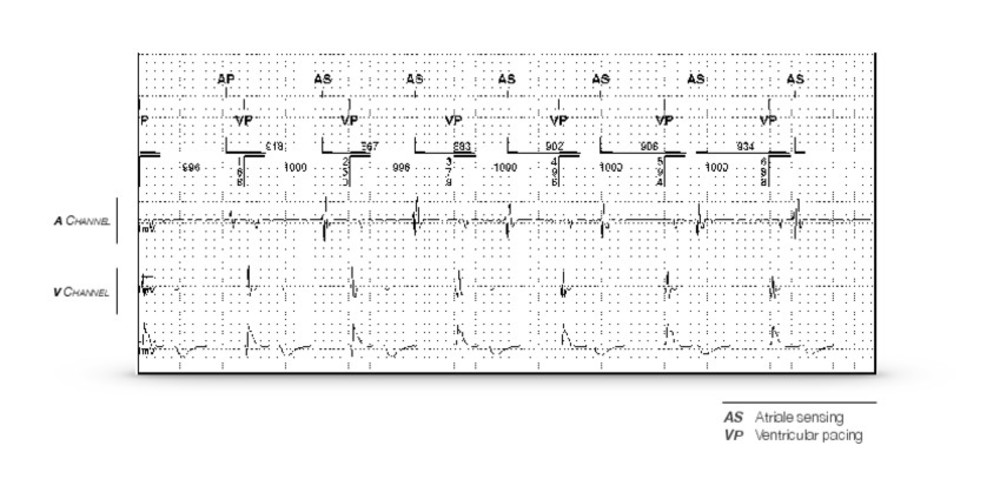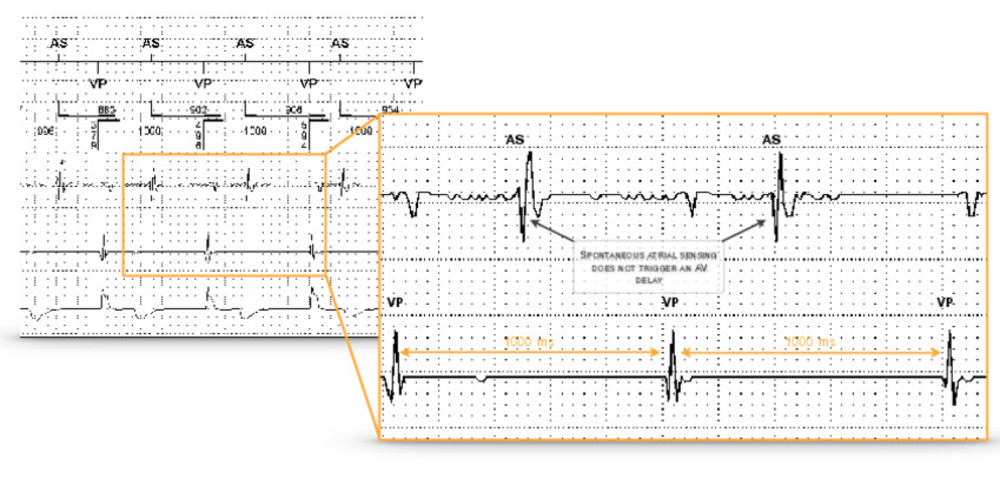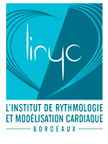dual-chamber DDI mode
Tracing
Manufacturer Abbott
Device PM
Field Pacing Modes
N° 8
Patient
81-year-old man implanted with an Accent MRITM pacemaker for complete atrioventricular block.

Graph and trace
Programming in DDI mode 60 beats/minute; fixed ventricular pacing at 60 beats/minute; sensing of regular atrial activity disassociated from ventricular pacing; the sensed atrial activity does not trigger an AV delay (characteristic feature of the DDI mode which does not allow the trigger function).

Other articles that may be of interest to you







The DDI mode provides atrioventricular sequential pacing (AP-VP) but without ventricular triggering of the sensed atria. Atrioventricular synchrony is only provided at the current atrial pacing rate (base rate, rate response, or smoothed rate). If atrial activity is faster than the atrial pacing rate as on the first tracing, atrial pacing is inhibited and there is no triggering of AV delay (operation equivalent to the VVI mode). This allows avoiding runaway ventricular pacing upon occurrence of atrial arrhythmia and explains the use of DDI as fallback mode. This mode can also be programmed in the long term, when in DDD mode, the pacemaker does not properly detect an atrial arrhythmia leading to the absence of fallback and erratic ventricular pacing. The choice of DDI mode is not appropriate in a patient with complete atrioventricular block and normal sinus function (absence of P-synchronous pacing), although is conversely completely acceptable if the patient, even with complete atrioventricular block, also presents a sinus dysfunction triggering permanent atrial pacing. Setting the base rate is therefore essential. It must be sufficiently high to avoid the occurrence of intrinsic atrial activation and be associated with a rate response. In this patient, programming at 70 beats/minute ensured a satisfactory atrioventricular synchrony.